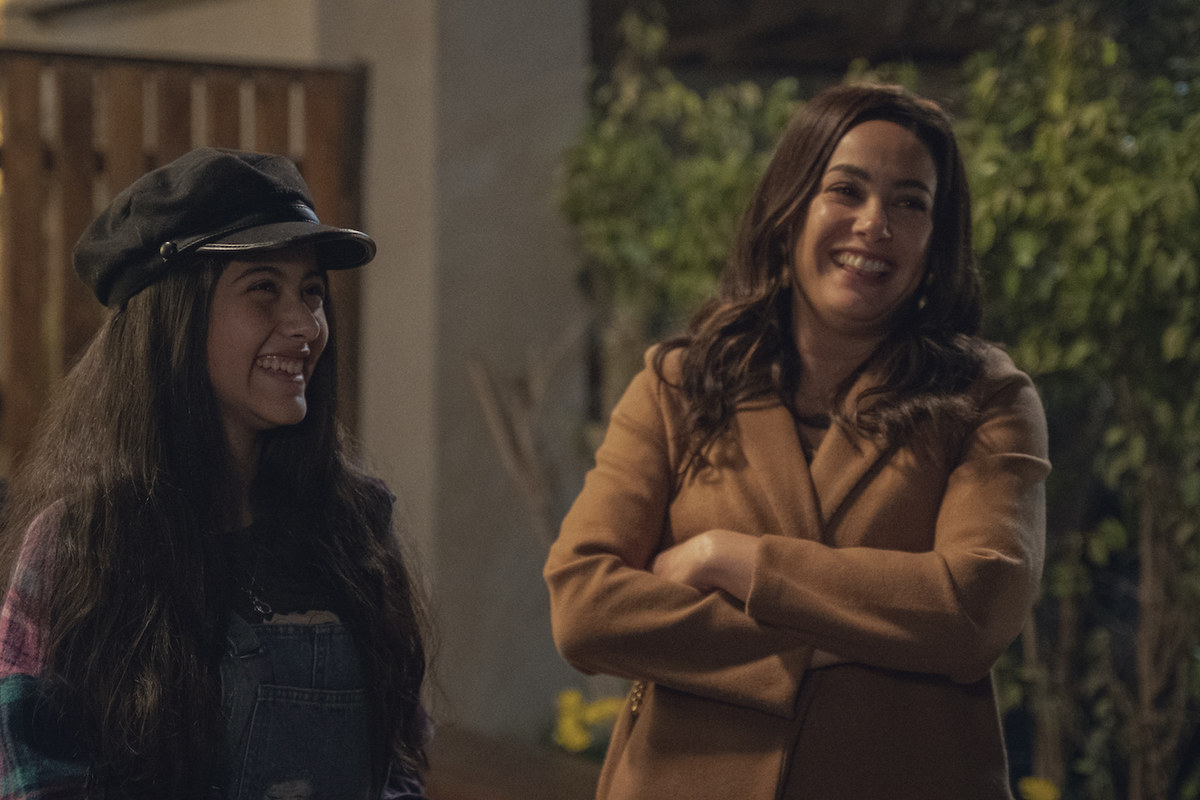Life Style: Arab stars take Milan Fashion Week by storm

LONDON: “When I was younger, I didn’t see anyone who looked like me on TV, whether it was Disney (or whatever) so hopefully some young girls will be watching and say, ‘She’s like me and she’s Arab as well.’”
The multitalented actress and singer Yasmina El-Abd, who recently grabbed international attention with her excellent performance in the Netflix Arabic original series “Finding Ola,” is talking to Arab News about her role in the forthcoming HBO Max series “Theodosia,” an Egyptology-inspired series set in 1906 London and aimed at kids and young adults.
El-Abd plays an Egyptian princess called Safiya, and what she appreciates most about this production is “its great representation.”
“Safiya is not a stereotypical character. The script is written beautifully, and they’ve worked with Egyptologists to make sure it’s proper information. Princess Safiya is well-educated; she’s funny, eloquent, and just a real Egyptian,” she says.
‘Well-educated, funny and eloquent’ is a description that could apply equally to El-Abd. The 15-year-old, who has Egyptian, Swiss and American heritage, is a confident and smart conversationalist who clearly thinks deeply about her work.
El-Abd has been acting since the age of nine and singing since the age of 12. She has so far released three music videos that have garnered over five million YouTube views and has also been a presenter for National Geographic Kids Abu Dhabi.
El-Abd spent her formative years in Switzerland, where she was born, before moving to Dubai. She currently lives between Cairo and London.
“I’ve always loved performing, loved music, loved being on camera,” she says. “And my parents put me in ballet and choir (classes). When I was younger, my dream was to be a dance instructor and open my own studio. And then I did choir and realized maybe I have a voice, maybe this could be another (option).”

Not long after arriving in Dubai, El-Abd went out on audition for various commercials in Dubai. She says that starring in scripted adverts gave her the desire to get into television and movies.
Her first non-commercial acting role was in Egyptian director Tara Shehata’s 2019 fantasy, “The Shadow of Cairo.” Essentially Shehata’s master’s degree project, the short film centers around a young girl —Maya — who seeks vengeance for her mother’s tragic death by chasing down sexual harassers in Cairo.
“She’s a superhero but without superpowers. This is what makes people want to watch it, because sometimes people are not interested in watching things that are too harsh and aggressive in the way they’re portraying their message,” El-Abd says. “There was a little bit of a fun element to it that made it (an easier) pill to swallow. That’s what I really loved about it.”
Next came her first feature film, “Daughters of Abdulrahman,” which delves deep into issues of patriarchy in the Arab world. Directed, scripted and co-produced by Jordanian-born filmmaker Zaid Abu Hamdan, the dramedy boasts a stellar cast, including the acclaimed Jordanian actress Saba Mubarak. It premiered at the 2021 Cairo International Film Festival where it scooped the Audience Award.

El-Abd played Hiba, a 15-year-old Jordanian girl (which meant she had to perfect her Jordanian dialect) forced into marrying a man three times her age.
“The script was flawless,” she says. “Zaid just really understands the character of a woman.”
There was already a theme developing in El-Abd’s projects: Addressing pressing social issues. This, she says, was no coincidence, but a conscious decision on her part.
“It took me a while to convince my mom that I wanted to act. When I did, she had just one condition: To (pick projects that) discuss important things. Obviously, there will be times when I do things purely for entertainment, but talking about things that matter is something she cares about and I also care about.”
All of which was good preparation for El-Abd’s role in “Finding Ola,” in which she features alongside more A-list Arab stars including Hend Sabry (who was also the show’s executive producer), Sawsan Badr, and Hany Adel.
El-Abd more than held her own in such illustrious company with her critically acclaimed, understated performance as Zeina, a teenage girl who’s trying to navigate the grief of losing her mother.
“Her relationship with her father was something that needed a lot of character analysis,” El-Abd says. “I have to do this before every role, whether in my head or writing it down; there has to be some sort of backstory that I have in my head (to) understand the character.
“Zeina is not a typical teenager, but I think many people can relate to her,” she continues. “She has many issues with her dad after her mom’s passing and she doesn’t want to face them. She’s just not ready to.”
El-Abd says that her aim before “Finding Ola” aired was that “even just one girl” would relate to Zeina. “I’m happy that I somehow succeeded in this,” she says.
And the young actress hopes that “Finding Ola” may signal the start of a shift in the development of Arabic-language television towards portrayal of teenage life.
“Before ‘Finding Ola’ I had trouble finding a script written for someone my age who wanted to act,” she says. “This was very rare. And if it was a girl my age, she’d just be passing in front of the camera, or she’d have one line in the show and then disappear. But Zeina was an important character with an important storyline — a character that is crucial for the show.”
El-Abd says the fact that she’s on a Netflix show “(with) all these incredible human beings” hasn’t really sunk in yet. But she allows that she is aware of her newly acquired responsibility as a representative of her age group.
“That is definitely a very big (responsibility), but I’m ready to take it on,” she says.
Despite her success at such a young age, El-Abd stresses that she knows she still has a lot to learn — and the desire to do so.
“It doesn’t matter how good or successful you are,” she says, “you constantly have to work on yourself.”
Noting that the news was copied from another site and all rights reserved to the original source.
xnxx,
xvideos,
porn,
porn,
xnxx,
Phim sex,
mp3 download,
sex 4K,
Straka Pga,
gay teen porn,
Hentai haven,
free Hentai,
xnxx,
xvideos,
porn,
porn,
xnxx,
Phim sex,
mp3 download,
sex 4K,
Straka Pga,
gay teen porn,
Hentai haven,
free Hentai,




